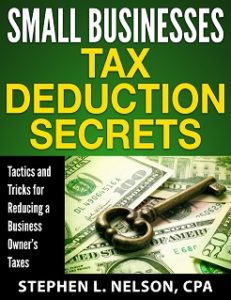
Saturday night, a friend graciously treated my wife and me to the Crosby Stills & Nash concert at Chateau Ste. Michelle in Woodinville.
The evening was, well, sublime. The winery provided a magical venue. And David Crosby, Stephen Stills, and Graham Nash again showcased their just massive musical talent.
But the evening also reminded me of an underappreciated small business truth: Entrepreneurial longevity produces big benefits.
Tripling or Quadrupling Your Venture’s “Exit Value”
For example, longevity boosts the exit value provided by most small businesses—and often in an enormous way.
Disappointingly, small businesses often sell for rather modest price-to-earnings multiples. The average multiple, in fact, probably runs about 2.5.
If your small business returns $100,000 in cash profits to you because you’re the owner, for example, the business may be worth about $250,000. Net of things like cash and accounts receivable, then, you might be able to sell the business for around a quarter million.
That makes sense if you think about. Think about how much you’d want to pay for a business that makes $100,000 in cash profits.
But you want to know a potentially easy way to dramatically boost your “exit value”? Simple. Work a few more years.
In other words, if rather than sell out today for $250,000 in cash, you work another five years earning $100,000 in cash a year and then you sell out for $250,000 in cash, you’ve extracted $750,000 in cash. (Five years with $100,000 of profit a year plus the $250,000 sales price.) That’s three times as much.
Work another ten years, and you’re looking at an extra $1,000,000 in cash flow from the business as compared to simply selling out today. (Ten years with $100,000 of profit a year plus the $250,000 sales price.) That’s five times as much.
Longevity makes a big difference to your effective exit value—or at least it does if you selling a business means you fully retire and then work on your golf game or travel.
Massively Boosting Your Retirement Income
Another benefit of longevity? Working and saving a few more years can produce a gigantic bump in the retirement benefit you can safely draw from your IRA, 401(k), SEP and similar accounts.
The math here gets complicated. But someone who retires today with $1,000,000 might feel comfortable counting on an annual pension benefit that starts at $40,000 as long as the benefit gets adjusted annually for inflation and goes on for 25 years.
If this person works five years longer, however, and so only counts on twenty years of payments, the person might feel comfortable counting on a larger pension benefit that starts at $60,000.
That fifty-percent bump in retirement benefits stems mostly from an extra five years of compounding and because the payments last for twenty years instead of for twenty-five years.
Note: I used the www.firecalc.com website to calculate annuity amounts that had a 98% chance of success. For the “retire in five years with a starting benefit of $60,000 a year” scenario, I assumed the business owner earned 5% on the retirement balances and saved another $14,000 a year using something like a Simple-IRA account.
Extending Your Most Productive and Prolific Years
A final quick point—and one that’s a little harder to quantify:
Health allowing, your most productive wealth-building and income-generating years may be your last few years.
In other words, after three or four decades of effort, you’ll have more experience than at any earlier point in your business career.
You’ll know more. And about all sorts of stuff related to your industry, your customers or clients, your vendors and suppliers, and then all the other people and businesses you can trust and want to work with.
As a result, you may have all sorts of financial and even non-financial opportunities present themselves to you–and at a point in your life when you’ve never been better prepared to exploit such opportunities.
This situation might mean you have your highest income years or that you nicely grow the business during those last few years.
Some people might scoff at this. And probably none of us should count on working or actively operating a business until we’re age seventy or older. I acknowledge that.
But I got to tell you… For three hours on Saturday night, Stephen Stills, David Crosby and Graham Nash showed about five thousand of us that at nearly age 70, they aren’t worn out, but still white hot.
Do You Own a Small Business? Want to Save Taxes?
Here’s something that I’ve noticed again and again about small businesses. They usually don’t do a very good job about maximizing their tax deductions.
More specifically, small business owners usually don’t go to the effort of structuring their business activities to protect legitimate deductions, to create new deductions and to recycle (or double-deduct) the deductions which can be used more than once to save taxes.
Which neatly brings me to my e-book, Small Businesses Tax Deduction Secrets. This 70pp e-book addresses this information short-fall by talking about how you can annually save thousands or even tens of thousands of dollars in taxes simply by more effectively using legitimate business deductions.
Click for more info or to purchase and download
And a quick note: If you’re a client of our CPA firm, you don’t need to purchase this ebook. We will happily provide you with free copies of any of our books, including this one. Just ask for a copy next time you talk to us.
